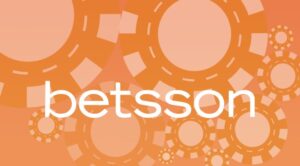Key Moments:
- Bill 5.076/2025 proposes doubling the online gambling house tax rate from 12% to 24%
- The Finance and Taxation Committee (CFT) has scheduled an urgent vote for Wednesday, October 22
- Industry representatives warn that higher taxes may drive bettors to unlicensed platforms
Momentum Builds Behind Tax Hike Legislation
Brazilian lawmakers are rapidly advancing Bill 5.076/2025, a measure that would raise the tax rate for online gambling houses from 12% to 24%. The Finance and Taxation Committee (CFT) has called for an expedited vote on Wednesday, October 22, aiming to move the bill directly to the Chamber of Deputies’ plenary session, bypassing conventional committee evaluations.
Government Aims to Bolster Fiscal Position
Officials emphasize that increasing taxes on the burgeoning online gambling industry is crucial to compensating for missed fiscal targets following a rejected tax decree. Finance Minister Fernando Haddad has advocated for new tax initiatives intended to capture R$20 billion in 2026. CFT President Rogério Correia has described gambling taxes as a “priority” for the current administration.
If approved, the procedural request could allow the bill to be considered without undergoing the typical committee scrutiny. The focus aligns with broader governmental efforts to strengthen public finances and address the revenue gap.
Further Increases Under Review
In addition to Bill 5.076/2025, lawmakers are examining Bill No. 5.090/2025, which would push the tax on gross gaming revenue (GGR) from 12% to 25%.
| Bill Number | Proposed Tax Change |
|---|---|
| 5.076/2025 | Online gambling house tax rate from 12% to 24% |
| 5.090/2025 | GGR tax rate from 12% to 25% |
Industry Expresses Concerns for Market Stability
The National Association of Games and Lotteries (ANJL) has released a statement criticizing the proposal as “technically flawed and untimely.” Industry stakeholders caution that a sharp increase in taxation could undermine the viability of licensed operators and inadvertently fuel unauthorized gambling activity at a time when Brazil’s regulated market is developing.
The ANJL emphasized:
“It’s not just 12 percent in taxes that bettors pay. In fact, the 12 percent represents only the payment of the allocations calculated on the difference between bets placed and prizes paid. After this payment, bettors bear the operating costs and pay all the other taxes of a normal business.”
The association also highlighted the additional tax burdens, such as the 25% corporate income tax (IRPJ), 9% CSLL, up to 9.25% PIS and Cofins, and local service taxes (ISS) of up to 5%.
Wider Fiscal Reform Efforts Underway
The move to increase gambling taxes is part of a larger governmental strategy to split economic reforms into focused legislative initiatives. The aim is to minimize resistance in Congress and attain more efficient approvals by dividing issues relating to wealth, finance, and betting into separate bills.
As the Chamber of Deputies prepares for the upcoming vote, all eyes remain on whether Brazil’s regulated online betting industry can maintain its competitiveness and regulatory compliance if tax rates are doubled in a single legislative move.
- Author


